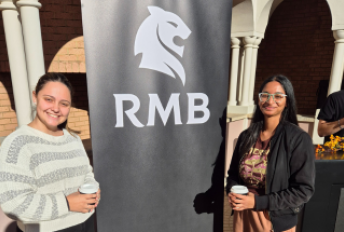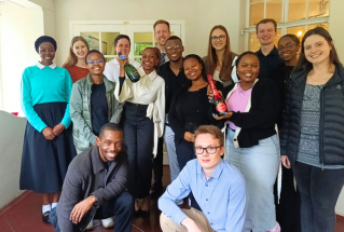[I never thought I would use the word “pundit” in a sentence. I wonder what it means exactly and do I want to be one when I grow up? A Google search defines a pundit as an expert in a particular subject or field who is frequently called upon to give their opinions to the public. It is derived from the Indian word “pandit” meaning wise man or teacher. Sounds like quite a compliment, maybe I should become a pundit.]
One group of experts hold that human beings are resilient and that the post-pandemic world will look very much the same as what came before. Another group points out that the changes made to cope with the pandemic (e.g. working from home as far as possible) could become permanent. To make my own predictions (and hopefully become a pundit) I consider lessons from the investment world:
Trends continue because humans believe that they are in control
Two basic facts are true for humanity. Firstly, we believe in a better tomorrow. If this were not the case, humans would have become extinct long ago. Secondly, humans like patterns. We prefer predictability over unpredictability because it makes us feel in control of our own destiny.
These two facts explain why bull markets tend to last longer than bear markets. Bull markets are more consistent with our core belief that times will get better. In addition, in a long bull market, past profits become the pattern that we recognise. Look, Mom! Stock markets go up, just like they did last year!
Ultimately, this also explains why negative news has such a profound impact on stock markets. This is especially true when we have experienced a long period of relative stability. The bull market in developed market equities from 2009 to the end of 2019 was one of the longest on record. Investors had a decade of building up their belief that they recognise the patterns and are in control. The global pandemic shook this belief and caused a severe sell-off in stock markets around the globe.
Humans dislike feeling out of control and seek to avoid losing control (again)
A severe sell-off in stock markets almost inevitably results in countermeasures to prevent such an event from recurring. Two obvious examples:
- The crash of stock markets in 1929 was followed by the creation of the SEC and greater regulation of financial reporting and stock markets.
- The global financial crisis of 2007-2008 resulted in stricter regulations for the banking sector with regulators discovering a new passion: financial stability.
When these measures are put in place to protect society, it is a reflection of our innate desire to control what is happening to and around us. The most prevalent emotion arising from the current situation is likely to be: “I never, ever want to feel like that again.” Consequently, we are likely to design measures to protect ourselves in the case of another global pandemic shutdown.
[Time for some predictions, I am trying to join the pundit-club after all…]
Taking the above into account, I start off my own predictions with reference to international travel, since the global pandemic most vividly affected that sector:
-
International travel will continue after the crisis, humans are far too optimistic in nature to foreswear the good things in life. However, business travel volumes are likely to be lower. There is nothing worse than being stuck in a small room in a foreign country than being stuck in a small room in a foreign country after conducting business that could just as easily have been conducted remotely.
-
Flexible cancellation policies will become more important than ever before. Too many tourism businesses refused to return customers’ money during the crisis. With good reason too, these businesses were spending the cash long before they ever rendered the service to their customers. They simply don’t have the cash to pay refunds if they are not also receiving bookings for next year.
-
The previous point has a wider implication: businesses will seek to reduce risk. After decades of slowly increasing risk to squeeze out marginal returns, there could well be a reversal in the trend. Businesses are likely to favour higher cash balances and greater use of equity rather than debt.
-
If businesses use less debt to operate, the demand for debt will decrease and keep its price (interest rates) low for potentially another decade.
-
Likewise, if businesses use more equity to operate, the demand for equity will increase and so will its price (return on investment). The risk here is that new investors demand a higher return on investment while cash flows do not increase substantially. This will put downward pressure of share prices, as companies raise new equity at a discount.
-
The point above suggests that equity markets will take longer to recover than what might be expected. Changing business models will take time and stock prices will therefore have to be attractive for some time. However, given the low starting point, it also implies that the pattern of equities outperforming other asset classes is likely to reassert itself over the next decade. We humans do love our patterns!
Only time will tell whether any of my predictions prove to be correct. Fortunately, in the modern world, it seems that being right is not a prerequisite for becoming a pundit…
This article was originally published in the 36One Newsletter. Read the original article.












 Virtual Campus
Virtual Campus
Get Social With Us
Download the UP Mobile App